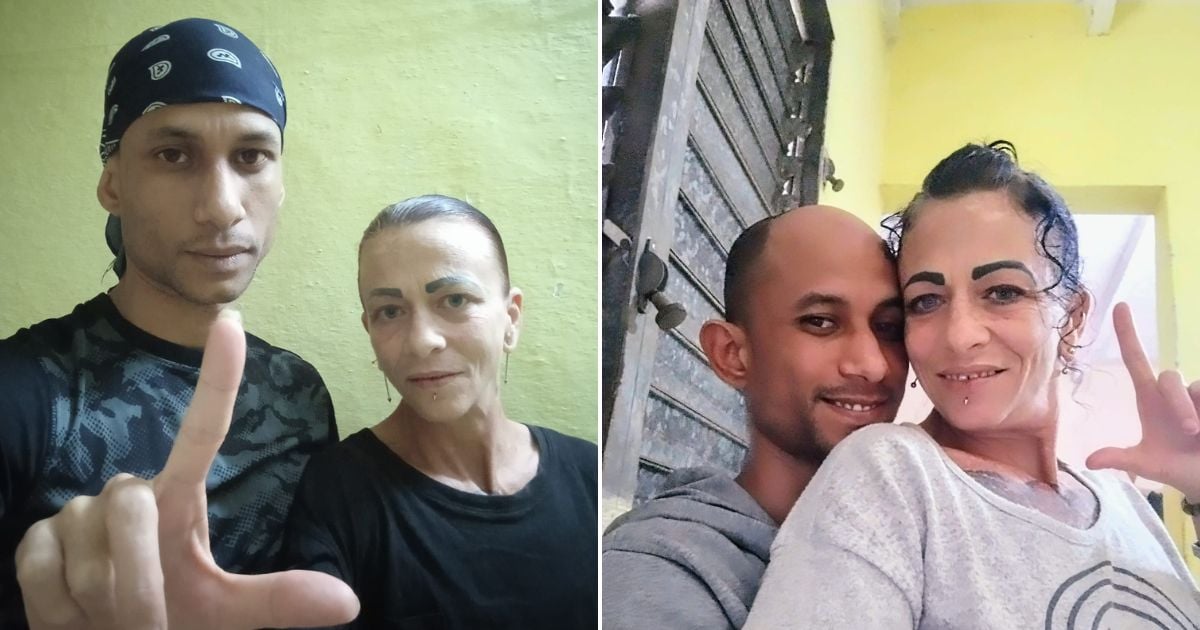Alexander Fábregas Milanés, who previously served a sentence for participating in the July 11 protests, is once again facing harassment from the Cuban regime and will be prosecuted for propaganda against the constitutional order after being held incommunicado for 11 days at the State Security (SE) headquarters in Santa Clara.
Marian Prieto Rodríguez, his wife, shared on Facebook that Fábregas had to travel to Sancti Spíritus but was detained by SE upon his return to Santa Clara. She also confirmed that her husband will be brought to trial: “He will be prosecuted for propaganda against the constitutional order. They didn't want to tell me the prosecutor's name or give me any more details. They only threatened me,” she said about a conversation with a political police officer, as reported by Martí Noticias.
“Yesterday, I went to see if I could see him, but they wouldn't let me. I asked for his cellphone, and they said no, that it had been confiscated. They locked me in a very cold air-conditioned room for a while. Then an officer came in and threatened me, saying that if I continued to denounce and publish on social media, I would be accused of the same crime,” Fábregas' wife added, denouncing that she also receives constant threats from SE.
Prieto expressed her distrust in the Cuban judicial system, noting that her husband has a lawyer, but: "It's useless; everyone here works for the government.”
Fábregas, 34, served a nine-month prison sentence for public disorder, a charge the regime used to justify his imprisonment due to a live broadcast he made on Facebook during the July 11 protests in Sancti Spíritus.
Recent Crackdowns on Dissent
According to Martí Noticias, since his release, Fábregas has received threats from SE for his social media posts. Last Sunday, opponents José Antonio Pompa López and Lázaro Mendoza García were sent to prison after months of detention at Villa Marista, the SE headquarters in Havana, accused of “propaganda against the constitutional order.”
The Provincial Prosecutor's Office of Havana imposed provisional imprisonment on both dissidents, as reported by Martí Noticias, based on testimonies from the detainees' families.
In the past, the crime of “propaganda against the constitutional order,” as outlined in the latest Penal Code, has been condemned by some jurists. Article 124 states that individuals will be charged if they:
a) Incite against the social order, international solidarity, or the socialist state recognized in the Republic's Constitution through oral or written propaganda or any other form.
b) Create, distribute, or possess propaganda of the aforementioned nature.
The crime of propaganda against the constitutional order, included in the Cuban Penal Code approved in May 2022, carries sentences ranging from 3 to 10 years in prison.
Understanding Cuba's Legal Repression
To provide deeper insight into the legal repression in Cuba, here are some frequently asked questions and their answers.
What is the crime of "propaganda against the constitutional order" in Cuba?
The crime involves inciting against the social order, international solidarity, or the socialist state recognized in the Constitution through propaganda, or creating, distributing, or possessing such propaganda. It carries sentences of 3 to 10 years in prison.
Why was Alexander Fábregas Milanés detained again?
Alexander Fábregas Milanés was detained again for allegedly engaging in propaganda against the constitutional order. This follows his previous imprisonment for participating in the July 11 protests and his continued social media posts critical of the regime.
What challenges are faced by dissidents in Cuba?
Dissidents in Cuba face significant challenges including harassment, imprisonment, and threats from State Security forces. They often encounter a judicial system that works in favor of the government, making legal defense difficult.
